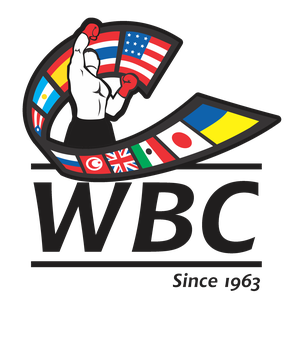
By Norm Frauenheim –
The World Boxing Council is trying to make some history at its annual convention. It’s also trying to rewrite some.
In the here-and-now, the acronym announced it will ban Russian and Belarusian boxers from its rankings until the unprovoked assault on Ukraine ends.
Kudos for that, although it’s a conditional tip of the historical cap. In boxing-speak, that’s just another way of saying it’s interim. This is prize-fighting, emphasis on the prize. That’s what dictates the business model. No way to rewrite that bit of history. A good sanctioning fee is a down payment on compromise.
That said, the WBC has decided to rewrite some other parts of boxing’s notorious past. This one is fun. More important, it’s free. The game is littered with lousy decisions.
The WBC got started on its rewrite during its annual meeting, this one in Acapulco, with Jeff Fenech’s 1991 draw with Azumah Nelson, then the WBC’s junior-lightweight champion.
The furor over that one has faded, but the WBC tried to right the wrong, awarding Fenech one belt robbed from him more than three decades ago. Fenech celebrated, mostly because it makes him a four-belt champion.
“It’s crazy, brother,’’ Fenech, an Aussie, told Australian media. “It would’ve meant more to me back when I really won the fight. But for them, the WBC, to do this is so special. Far out, it means so much to me.’’
Far out, indeed.
It’s not exactly clear how far the WBC intends to go with its rewrite. It looks to be a bridge too far. Boxing has been called the world’s second oldest profession, which means there’s an old and new testament full of questionable decisions.
For now, at least, it appears decisions judged to be bad beyond dispute will have to involve a WBC belt. Still, the WBC has already shown a willingness to wade into geo-political issues.
The ratings ban on Russian and Belarusian boxers is just the latest example. Hence, it wouldn’t be a surprise to see the WBC award a belt to any fighter who got robbed, no matter what titles or medals were involved at the time.
Here a few:
At the top of the list, the infamous 1988 Olympics in Seoul.
It’s at the amateur level, a good place to start. Also, WBC President Mauricio Sulaiman has long talked about the importance of Olympic boxing. It’s never been the same since Roy Jones Jr. and Michael Carbajal, both Hall of Famers, were robbed of gold. Both Americans wound up with silver that included only controversy and no consolation.
After winning every round before the light-middleweight gold medal bout, Jones lost, 3-2, to South Korean Park Si-hun, who never fought again.
Carbajal, known for power and precision, lost by a shutout, an astonishing 5-0, to an unknown Bulgarian. It was a bout in the lightest weight class, yet it served as a warning to what was coming in the Jones bout.
In a dispute later documented by the Los Angeles Times, the official in charge of assigning refs and judges — an agent for Stasi (the old East German police force) in his day job — got into an argument with the Americans before assignments were made the night before the gold-medal round. He stormed out of a meeting, telling American officials that they would see what was about to happen in the next day’s opening gold-medal bout, Carbajal’s bout.
The thefts, infamous and remembered because they happened on a worldwide stage, also impacted the pro game. Early in his career, Jones would not fight anywhere outside of the US. That reluctance robbed him and the business of an opportunity to sell his singular talent worldwide
Yet, another acronym, the IOC (International Olympic Committee) has never corrected the record. The WBC could. Give Jones and Carbajal its own version of a gold medal.
Next on the lousy list: Pernell Whitaker’s draw with Julio Cesar Chavez in San Antonio at the Alamodome in September 1993. It was called The Fight. It should be remembered as The Felony.
During an era when establishment media still paid attention to boxing, Sports Illustrated featured the welterweight fight for the WBC belt, putting Whitaker on the magazine’s cover with the headline “ROBBED!”
SI scored it 117-110 for Whitaker. So did I. I was there. But the judges scored it a majority draw. Whitaker was known for elusive defense, yet he landed more punches, 311-220, than the Don King-promoted Chavez. It was 115-115 on two cards and 115-112 for Whitaker on the third.
A personal memory: A roaring crowd of 65,000 walked out of the Alamodome quietly. It was a Chavez crowd, predominantly Mexican and Mexican-American. They know boxing, better than anybody in the world. The silence said plenty. They knew what they had just witnessed.
This list could start and end with the Seoul Olympics and Whitaker-Chavez. They define the rest. Still, no lousy list is ever complete. And none is ever wrong. Only the scorecards are. There are just too, too many bad decisions.
Since the WBC opened the door, correcting one and probably more, here are two:
First, Timothy Bradley’s split-decision over Manny Pacquiao, June 2012, in Las Vegas for the WBO’s welterweight title. On the list of lousy decisions in the 21st Century, this one figures to always be a contender. Put it this way: If Bradley had been at ringside commentating in his current role as an ESPN boxing analyst, he’d have been outraged.
Second, Evander Holyfield’s draw with Lennox Lewis, March 1999, Madison Square Garden, New York. The fight between heavyweight belt-holders was called Undisputed. It has been in dispute ever since. It looked as if Lewis would win. He appeared dominant over at least eight rounds. On the scorecards, however, it was three different fights. It was Holyfield, 115-113, on one. It was Lewis, 116-113, on another. On the third, it was 115-115, resulting in a draw, a majority mess.
Nobody agreed, not even then-New York Mayor Rudy Giuliani, who got something right for maybe the last time.
Giuliani called it “a travesty.’’
There’ll be more of that. No correction necessary.

























